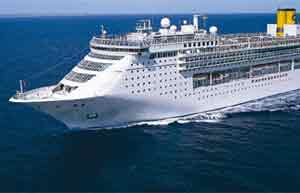Worries arise over ability to recoup aid
Updated: 2011-11-03 07:53
By Fu Jing and Zhang Chunyan (China Daily)
|
|||||||||
Experts say Europe should take steps to protect investments from China
CANNES, France - The European Union and its member states should revise their regulations to ensure investments and bond purchases that China and other countries make during the eurozone's current debt crisis are safe and can be returned, several European experts said.
The experts also said China should offer help in solving Europe's sovereign-debt crisis but should not try to make itself into the savior of the troubled euro. They said the EU and its member states can obtain more help from emerging markets only if they give assurances to their creditors and make institutional and structural reforms.
The experts made those suggestions at a time when President Hu Jintao, who will attend the G20 summit in Cannes, France, this week, is likely to place further emphasis on his country's confidence in the EU and the euro. He expressed similar sentiments earlier this week when he met with Austrian President Heinz Fischer.
The experts said China should take advantage of its opportunity to shore up the euro and European economy by linking those goals with its domestic economic agenda.
| ||||
Such concerns took on greater weight after the value of Greece's debt was written down by 50 percent, a loss that fell on the private investors who had loaned the country money.
"So it is important for the EU and other institutions to regulate and ensure that foreign investments will be returned," said Lans Bovenberg, an economics professor at Tilburg University in the Netherlands.
"And this can work as an incentive for them to extend help in rescuing Europe." Bovenberg also said the International Monetary Fund, one of the main channels through which money used to bolster economies passes, should improve its governance.
Bovenberg said Europe cannot solve its debt crisis by itself, especially after European leaders agreed this past week to raise the amount of money they have set aside to deal with emergencies, taking it from 440 billion euros ($607 billion) to 1 trillion euros.
"Yes, China and other emerging economies need to help Europe," Bovenberg said. "This is very important. Europe cannot solve the crisis alone."
He said China, the Netherlands, Germany, Switzerland, Norway and other creditors have two responsibilities. One is that they stimulate domestic demand, which is especially true in the case of China.
"At the same time, they need to make sure enough money is available for Southern European states, especially when their demand will also go up and thus also the demand for exports (of goods from creditor nation) and imports (to debtor nations)," Bovenberg said. "Creditor nations need to help debtor nations."
Shada Islam, senior researcher with the Brussels-based think tank Friends of Europe, said the G20 summit this week will be the theater in which China and other countries without heavy debt loads display their reactions to the troubles in Europe.
Klaus Regling, chief executive of the European Financial Stability Facility, which was established to deal with the debt crisis, has recently visited China, Japan, India and Brazil to talk about the possibility of helping Europe out of its troubles.
"The visits show a significant shift in global economic power," Islam said. "We have always known the importance of the BRICS countries (Brazil, Russia, India, China and South Africa), but this is the first time the EU has asked them for help."
Professor Paul de Grauwe, from the Catholic University of Leuven in Belgium, said Europe should accept all the help it can get in overcoming its crisis and should eliminate the causes of its debt troubles by adopting structural reforms.
"All help is welcome," de Grauwe said. "But at the end of the day, Europe will have to solve the problem itself. China cannot save the euro."
What China can do is selectively invest in some governmental bonds and other projects, said Didier Cossin, professor of finance and governance at the Switzerland-based IMD Business School.
Cossin said if China wants to find sound investment projects in Europe, it should first make sure that its investments come with the right prices, guarantees and deficit controls.
"China needs to select the right countries to buy bonds in, and making safe investments with good returns makes a lot of sense for China," Cossin said.
Eveline Filon and Cecily Liu contributed to this story.












